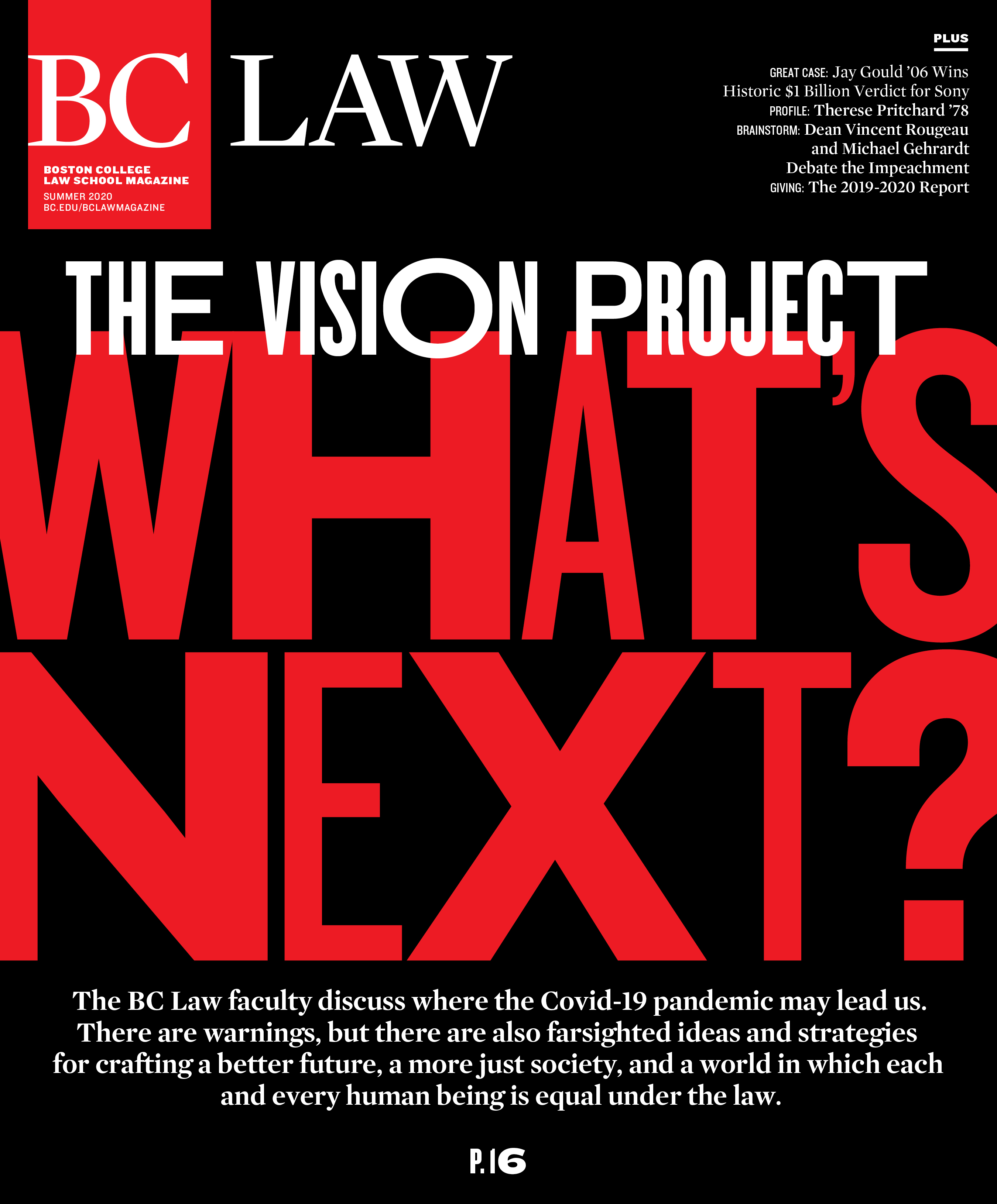Grasping the serious economic and financial ramifications of the coronavirus outbreak in early March, four BC Law faculty launched a project to analyze and track the emerging policy responses, including the provisions of H.R. 6201 (the “Families First Coronavirus Responses Act”) passed by the house on March 14.
Professors Hiba Hafiz, Shu-Yi Oei, Diane Ring, and Natalya Shnitser quickly produced a working paper, “Regulating in Pandemic: Evaluating Economic and Financial Policy Responses to the Coronavirus Crisis,” in order to track developments.
“Having spent the past several years working together as part of Boston College Law School’s Regulation and Markets Workshop, it made sense to combine our efforts and expertise to try and contribute to effective policy guidance at this critical time,” Ring explained in the Surly Subgroup tax blog.
As stated in the abstract, the Working Paper discusses the ramifications of proposed and legislated policy and other actions and identifies three interrelated but potentially conflicting policy priorities at stake in managing the economic and financial fallout of the COVID-19 crisis: (1) providing social insurance and a social safety net; (2) managing systemic economic and financial risk; and (3) encouraging critical spatial behaviors to help contain transmission.
“The consequences of these three policy considerations and the potential conflicts among them make the outbreak a significant and unique regulatory challenge for policymakers, and one for which the consequences of getting it wrong are dire,” the paper states.
To read other pieces in this issue’s The Vision Project, click here.



